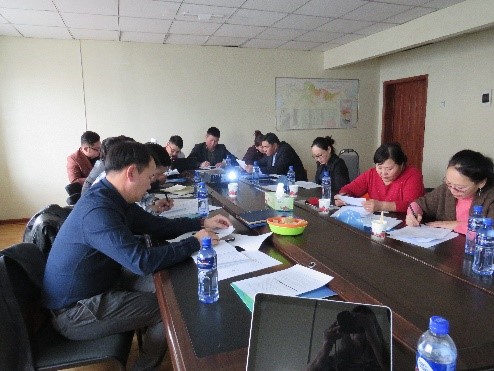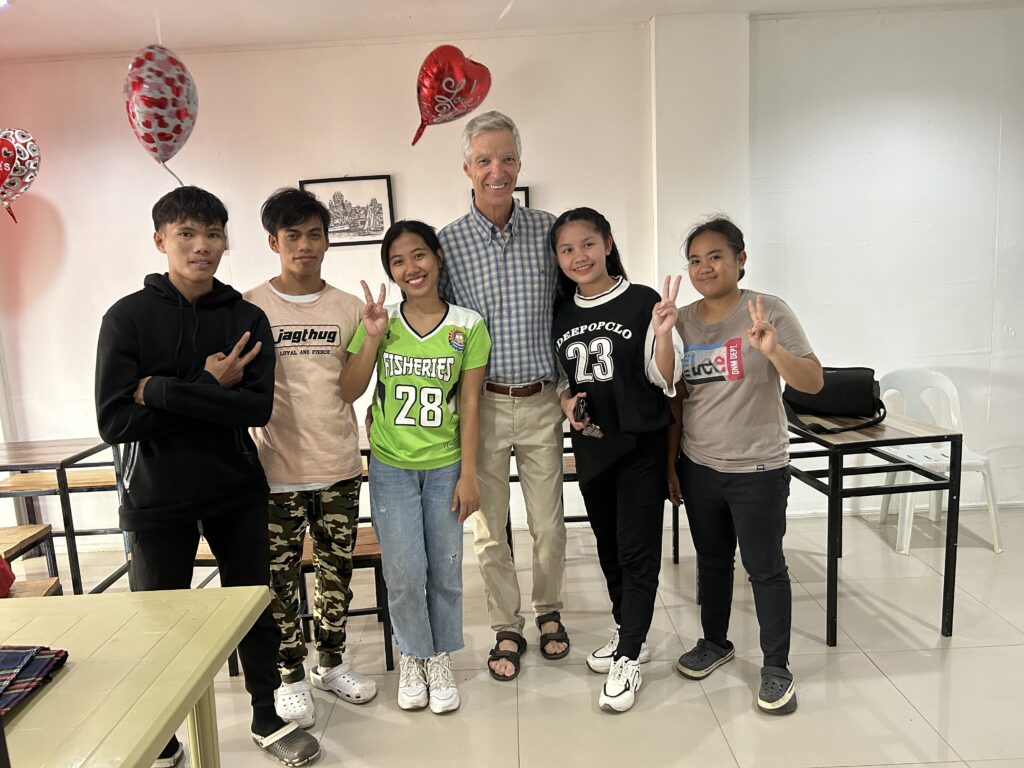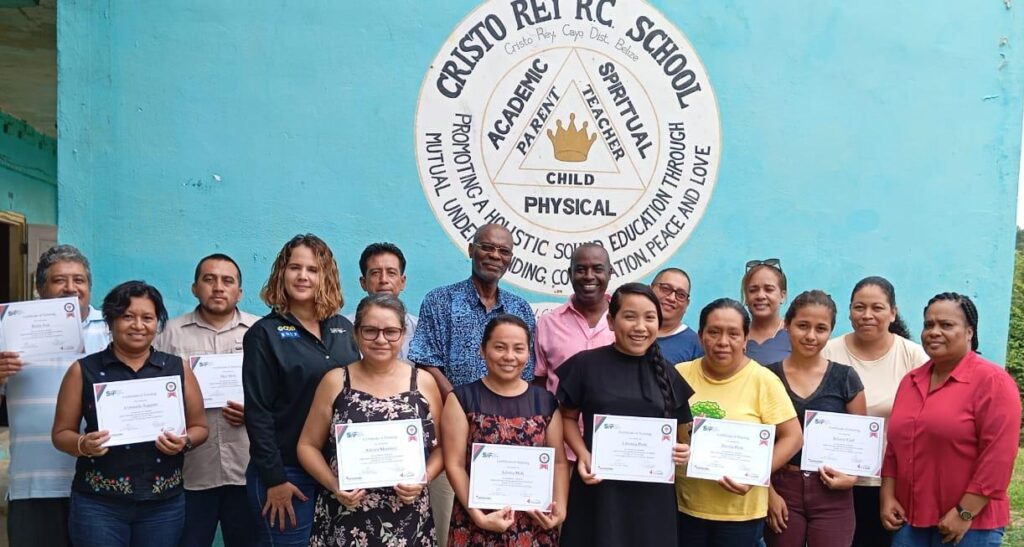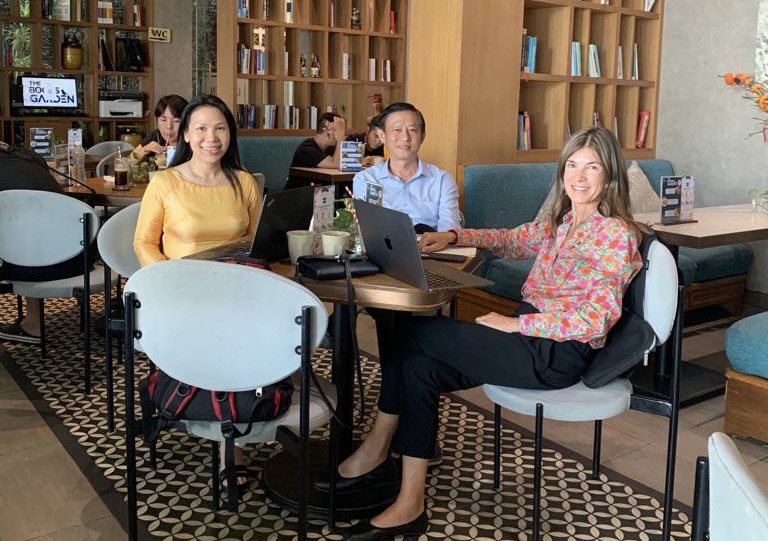Expectations and surprises in Mongolia
I am not sure what I expected when I headed to Mongolia as a Volunteer Advisor with CESO, but whatever it was, what I experienced was much better.
My assignment was to provide gender awareness training, including how to do a gender audit and how to incorporate gender equality into organizations. The targets for my ‘expert’ advice were the Governor’s office in Choibalsan, the Governor’s office in Bayandun Soum and the Department of the Environment for Dornod province.
My first stop after a rather long journey was the capital of Mongolia, Ulaanbaatar. Ulaanbaatar is a modern city with all the amenities one would expect. The traffic is crazy and unpredictable – not pedestrian friendly so you must be very careful. I did not have the opportunity to take advantage of the ballet or opera which are reputed to be excellent here. The most unfortunate thing about UB (as it is called) is the extreme pollution, causing many to wear masks indoor as well as outdoor.

After two days during which I received an orientation to the MERIT project, I was on my way to Dornod province, easternmost of Mongolia, only 100 km from the Chinese border to the east and 400 km from Russia to the north. As we left the city, the terrain was hilly but then it gave way to vast plains of brown wintery grass. About one hour out of UB, we stopped at the great Chinggis (Mongolian spelling) Khan statue. It was very impressive to see the mighty warrior on horseback, surrounded by his soldiers.
There is a belief in Mongolia that every hill/mountain has a spirit and the locals build small monuments to them to show respect. We saw several. At one, which had a pile a rocks next to the monument, our driver stopped so he could run around the rock pile once in the belief it would bring luck to the trip.
It is an eight hour trip from UB to Choibalsan, with very few rest stops along the way. So after almost four hours, it was a relief to stop for lunch in a small village that seemed to appear out of nowhere. We went to a restaurant on the 15th floor of a building that provided spectacular views of the surrounding landscape. It was strange to see how the town ends abruptly and gives way to the Mongolian steppes which go forever.
The rest of our trip was frequently interrupted by herds… of sheep and goats, horses, cows and yes, camels. Large herds too, and all wanting to cross the road in front of us it seemed.
We arrived safely in Choibalsan about 5 p.m., ready for the real work to begin.
 I delivered my first training session 2 days after our arrival. I found it quite difficult because of the need for translation. I easily lost my train of thought. However, the session was a success and the director of the department of the Environment agreed to appoint a point person responsible for gender equity and a group to work along with him/her.
I delivered my first training session 2 days after our arrival. I found it quite difficult because of the need for translation. I easily lost my train of thought. However, the session was a success and the director of the department of the Environment agreed to appoint a point person responsible for gender equity and a group to work along with him/her.The following days were to bring real adventure as I was off to Bayandun – a small soum about 180 km north of Choibalsan. As we bounced and jerked our way along the mud rut that was the road, we saw many herds of cows, horses, sheep and goats and luckily, one of Mongolian gazelles – graceful and fast! We also saw many gers (yurts) and to my surprise, many had solar panels and satellite dishes! It is good example of the mixture of new and old in Mongolia. It was the same with the herders. Though most were on horseback, I saw one on a motorcycle!
Bayandun has no running water. We stayed in a hotel which was half of a private house, two of us in one room with six wooden cots with a 2 inch pad on them. Our room was basic, with a wood burning stove to keep us warm at night (it was -23 outside) and a basin, a table and a couch. The owners gave us hot water to wash and make coffee.
 The training in Bayandun went well as the people were eager to learn. So we had a successful day – productive and meeting our objectives. The Governor was very supportive and we left behind an enthusiastic group to work on gender equality.
The training in Bayandun went well as the people were eager to learn. So we had a successful day – productive and meeting our objectives. The Governor was very supportive and we left behind an enthusiastic group to work on gender equality.
I can’t say the food in Bayandun was to my liking but we were served generous portions of noodles with beef, beef with rice, beef with dumplings, beef in soup…. After two nights, we returned to Choibalsan safe and sound and our bellies yearning for chicken.
Most of the rest of my time in Choibalsan was working with gender groups to help them prepare to conduct a gender audit. Mongolians, though very traditional, are very open to new ideas and eager to learn new ways of doing things. It was a pleasure to work with them. The third and final training was also successful, in great part due to the willingness of the participants to learn.
 My trip was not all work and no play. The project officer and her husband took my colleague and I to see a few sites in the city. First, we went to a Buddhist monastery, which was beautiful and very solemn. It was a special experience to hear the monks reciting Tibetan chants and to see the ancient Tibetan manuscripts, wrapped in richly coloured cloth. Then, we visited the river front park and went to a local market where they sold fresh fruit, vegetables, sausage and snacks made of milk. Upstairs they sold clothes, including some beautiful cashmere items. Socks made of camel yarn are a great favourite.
My trip was not all work and no play. The project officer and her husband took my colleague and I to see a few sites in the city. First, we went to a Buddhist monastery, which was beautiful and very solemn. It was a special experience to hear the monks reciting Tibetan chants and to see the ancient Tibetan manuscripts, wrapped in richly coloured cloth. Then, we visited the river front park and went to a local market where they sold fresh fruit, vegetables, sausage and snacks made of milk. Upstairs they sold clothes, including some beautiful cashmere items. Socks made of camel yarn are a great favourite.
While I was in Choibalsan, Mongolians celebrated the Lunar New Year. From my perspective it was a bit boring since it meant nothing to do for 4 days and I had no internet! However, there were some special highlights. One was watching people walk by in beautiful traditional outfits. Then one day, my colleague and I were invited to two homes as part of the celebration.
At each home, we were warmly welcomed. As customary, we brought a small gift for the hostess and sat down to celebrate with the family.

There was a variety of very good food which included sweet rice with raisins, a potato salad, sausage, pickles and the prize, the torso of a beef as in the first home, or of sheep as in the second. It is traditional to drink milk tea before eating the meat which is presented with the tail of the animal on display. Of course, there was also “buzz”, a dumpling filled with ground meat. When it was time to leave, each hostess presented us with a small gift. It was the perfect ending to a great visit.
Soon it was time to return home. The four weeks had gone surprisingly quickly, despite the down time during the Lunar New Year Celebrations. I will not soon forget the generous people, the warm welcome and the new friends that I made. I may not have known what to expect but now, I do, and I will go back to this great country.


